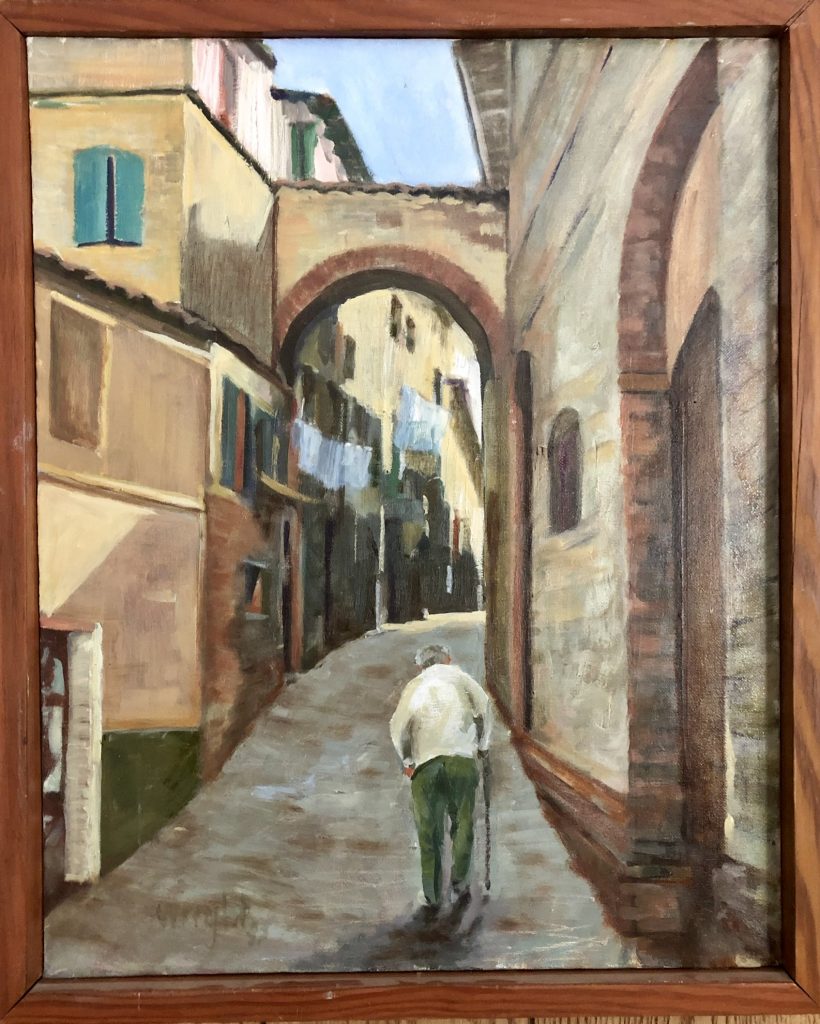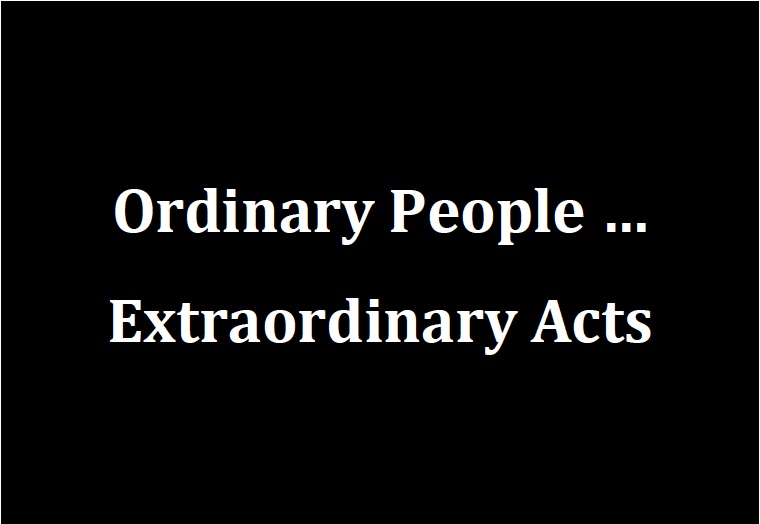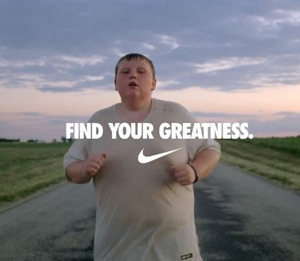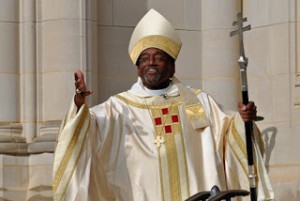My sermon preached at Trinity Episcopal Church, Rosebud Episcopal Church, Rosebud Reservation, on Sunday, 2 June 2019: This is the day when Jesus gets out of the way – because Jesus trusts us to do the work he has given us to do.
5 Easter 2019: We are all clean, holy, and worthy
5 Lent C: Sending forth in love
The sermon preached on Sunday, 7 April 2019, the Fifth Sunday in Lent, Year C, at Trinity Episcopal Church, Rosebud Episcopal Mission, Rosebud Reservation, S.D.
Thank you to Karoline Lewis of Luther Seminary for her insights into the Gospel passage.
(And one little note: Dr. Wright was a general surgeon, not an orthopedic surgeon.)

4 Epiphany C: God’s love is for everybody …
3 Epiphany C: Pay it forward, forever and ever …
This is God in action
It is a cold Sunday morning here on the Rosebud, this Second Sunday after the Epiphany. At 6 a.m., the temperature with the wind chill – and we know wind chill here on the Great Plains – was nearly 30 below zero.
It is so cold that we canceled most of our church services on the Western side of the Rosebud Episcopal Mission. I don’t want our people out in weather that literally can kill you in less than 30 minutes.
But even when we don’t have church services, God is still at work in our lives. 
A few minutes ago, a car pulled into my driveway. If we had had church, I wouldn’t be here at this time, and most of the people know that. But since my car was still parked, still covered in a light dusting of snow, whoever was in that visiting vehicle knew that I most likely was home.
After a few moments of hesitation, the driver got out. She didn’t have a hat. Or gloves. She was holding her way-too-light winter jacket closed with one hand. “You need to zip that up,” I said. “Oh, it doesn’t zip,” she said. “It’s broken.”
I know this woman. She is one of our parishioners here on the Rosebud, a woman who has struggled to hold things together, a woman with children and grandchildren, one of whom has a several physical handicap. This woman needs help, but she hesitates to ask. She doesn’t want to be a burden. Whenever I am with her, I always let her take the lead, because I know how hard it is for her to ask for anything.
“Didn’t we have church this morning?” she asked. “No,” I told her. “We canceled church because of the cold.”
“Um … does the church have any help?” she asked, hesitating every other word.
It turns out they have no food to eat in the house. I’m not surprised. It is mid-month, and it is very cold, and many people do not have enough money for both heat and food.
So I take her into my kitchen, which she does not want to enter because she might track snow onto my linoleum floor. “I don’t care about the floor,” I told her. “It can be washed. Come inside. It’s too cold to stand out there.”
Finally, she enters. I have to encourage her to take more than one step into the kitchen.
“Do you have any food, like bread?” she asks, her head down. I know that she doesn’t want to do this, but she has children. They must eat.
“I don’t have any bread,” I tell her, “because I generally don’t eat bread. But here … I have other food for you.”
I take out four cans of soup, 10 cans of tuna, pasta, couscous, cans of pears and apricots. I give her half of my grapes, most of my bananas, most of my oranges. “Here,” I say, “these have to be eaten. Help me with this.” I see two bags of popcorn someone had given me, as well as some crackers. (“Oh,” she says, “we have crackers.” “Take them,” I say. “You might as well have some more.”) The  large canister of oatmeal has been opened, but I give it to her anyway. It’s mostly full, and the kids will like it. I scour the cabinets for more food her family will eat. “Have you tried quinoa?” I ask. “No. What is it?” she replies. “It’s one of those healthy grains. Easy to make. Just follow the instructions. I like it,” I tell her. In the bags it goes.
large canister of oatmeal has been opened, but I give it to her anyway. It’s mostly full, and the kids will like it. I scour the cabinets for more food her family will eat. “Have you tried quinoa?” I ask. “No. What is it?” she replies. “It’s one of those healthy grains. Easy to make. Just follow the instructions. I like it,” I tell her. In the bags it goes.
Much of the food I give is food I have purchased for just this occasion. People come to my door, sometimes one or two a day, looking for help. I try to keep food on hand that I know they will eat. Cans of fruit, vegetables, soups. Bags of pasta. Boxes of couscous and quinoa. When I have fruit on hand, I always share it with them. I ask them to help me eat it before it goes bad. Our people don’t get enough fruit; it’s frequently too expensive. I try to make sure I always have some on hand for my visitors.
But I have to be careful not to give too much, not to give all that I have. This is a shared meal, as it were, which means that I have to have some food left for myself. The goal is to make sure that everyone has enough. Just that: Enough.
Through it all, my two dogs, Yassa and Bella, are standing there to greet her. She hesitatingly reaches out for them. My dogs are trained to be church dogs, meaning that they are polite and don’t jump, that they greet each person with love. “They’re so soft,” she says, over and over again. “I can’t believe how soft their fur is.” I tell her it is the dog food, keeps them healthy, the same dog food the vet uses. She marvels again at their softness, and their gentleness. “They’re so nice,” she says, stroking Yassa’s fur. (Meanwhile, Bella, who emerged from her blankets, stands shivering. My visitor is concerned: “She’s cold!” I tell her than Bella lives under her blankets in the winter, and that she always shivers when around guests. Bella is a little … well, manipulative that way. She wants every visitor to pick her up and cuddle her. In return, she loves to give kisses. It’s just Bella’s way …) I do not tell my visitor how much the dog food costs; I am too embarrassed to admit I have that kind of money to feed dogs …
As she turns to take the food out to the waiting car, where her daughter and granddaughter are waiting, I ask if they can use some coats. My family and I picked up a lot of them for a giveaway that I am having problems getting organized (it’s complicated, but it will happen).
We go to the front porch and find a new jacket for the woman, one that is warm and will zip up. Then we find one for her smallest child. Then we dig through and get hats and scarves and gloves. “Take what you need,” I say. “It’s for you.” She is hesitant, again. She does not want to take too much, but I know there is a need. “Really,” I say, encouraging her. “Don’t you want some of these scarves? They are hand-made.”
Finally, my visitor takes some of the softest scarves she can find. “If it’s all right …” “Take as many as you need,” I say. “Wouldn’t you like another one? They’re handmade for the oyate (the Lakota people).” “Just one more,” she says. “They’re so soft …”
I peek out the window and see the children in the car already consuming the fruit, smiling as they eat it. Already, this has been a good visit.
Again, we go to the door. I know that she feels she has taken too much.
“Do you have a wood stove?” I ask. “I have wood if you need it.”
Once more, hesitation.
Finally, I get her to agree to take what I have stored in my “secret stash.” (We cut wood for the people here on the Rosebud in our Firewood for the Elders program. While I was away after Christmas, nearly all of it was taken by a few folks who have lost their way when it comes to taking care of all the oyate. But we are cutting more wood, with the help of the community. To learn more about that, see our new website, rosebudepiscopalmission.org, and look under “Our Blog.”)
She and her daughter take the wood that is left, enough to keep them warm at least for another day.
Our new Presiding Bishop, The Most Rev. Michael Curry, has proclaimed that we are part of the Jesus Movement. That we are the ones who are called to live out the Gospel of love and inclusion every single day of our lives. That we are the ones who can change the world by our words and deeds.
No, we didn’t have church this morning on the Rosebud West. It was too cold.
Instead, we – a visitor and myself, as well as my two dogs – had church in my kitchen. Where we broke bread together by sharing our food. And on my front porch. Where we shared from the abundance of cold-weather gear.
This is the Jesus Movement. This is God in action.
Our collect for today, the Second Sunday after the Epiphany:
Almighty God, whose Son our Savior Jesus Christ is the light of the world: Grant that your people, illumined by your Word and Sacraments, may shine with the radiance of Christ’s glory, that he may be known, worshiped, and obeyed to the ends of the earth; through Jesus Christ our Lord, who with you and the Holy Spirit lives and reigns, one God, now and for ever. Amen.
God’s marching orders for our lives …
Matthew 2:1-12
And now we come to what one commentator calls the “’Adults-Only’ Nativity Story,”[1] Matthew’s version of the birth of Jesus, the one without the census-taking, without the “no-room-at-the-inn” rejection, without the stable or the manger or the animals, without the angels or the shepherds, without the pondering in Mary’s heart.
Unlike Luke’s Gospel, in Matthew, we skip the birth narrative and go straight to the Epiphany, to the moment when wise men show up from the East, declaring that the child they seek is the King of the Jews.
We know this story. We’ve just heard the Gospel, just sung the song: The wise men (some say three) follow a star (some say for two years), until they find the Christ Child in a house (a house, mind you, not a stable) in Bethlehem (on this, Matthew and Luke agree). The visitors drop to their knees, offer gifts of gold, frankincense and myrrh (myrrh? The stuff you use to embalm a body???), and then leave, going home “by another road.”
But what if the story were told from a different perspective? What if, instead, we were to hear the story not of three wise men from the East, but of three wise women?
No, I’m not talking about that old joke about how the women would have asked for directions, gotten there sooner, made dinner and brought di-dis …[2]
I’m talking, instead, about a whole different approach to the Epiphanyt story, one that comes from retired Bishop Steven Charleston, a Choctaw and Native American bishop of The Episcopal Church:[3]
“Three wise women set out to follow the star.
Each ended the journey and gave away her treasure along the way.
One dropped out when she was needed to heal the sick during a plague.
The second stayed behind to help prevent a war with her leadership.
The last remained in a great city to provide for the poor.
When the star left the heavens each awoke the next day to discover a gift placed beside her while she slept.
They never solved this mystery, but the meaning is clear:
They had arrived at their destination even though they had not completed their journey.”
My friends, the Epiphany is not about the news that the Messiah has come into our lives. It is the story of what we are supposed to do with our lives.
For just as the Magi – two of them? Three of them? Heck, could have been 100 of them, as far as we know – came to make manifest to us the Good News that God is here for all the world, so we are to make that Good News manifest as well.
We are not here this morning to celebrate the arrival of Jesus in our lives.
We are here to celebrate what that arrival means in our lives.
We are here, my friends, to celebrate the revelation, the great “Aha!”, the epiphany that God came into the world, as one of us, to show us, in no uncertain terms, that God … loves … us.
And not just us … not just those of us gathered here in this church … but all of us. The people we know. The people we don’t know. The people we love. And the people we could easily do without.
Brass tacks, my friend: Epiphany shows us the mission of our lives. The mission of living out God’s love with ALL of God’s beloved people.
I do not want us to leave this place this day thinking, “Epiphany – been there, done that, will do it again next year.”
Because Epiphany isn’t some one-day, one-off celebration that we do once a year and then forget until the next Jan. 6.
Epiphany is the revelation of God’s marching orders for our lives.
Marching orders that boil down to one thing, and one thing only:
Love.
Howard Thurman, the great theologian and civil rights leader, was speaking of this day when he wrote:
“When the song of the angels is stilled,
When the star in the sky is gone,
When the kings and princes are home,
When the shepherds are back with their flock,
The work of Christmas begins:
To find the lost,
To heal the broken,
To feed the hungry,
To release the prisoner,
To rebuild the nations,
To bring peace among people,
To make music in the heart.”[4]
This is the day, my friends, when we turn the joy, the celebration, the glory of Christmas, into the work of the rest of our lives.
Instead of focusing so intently on what we want – more money, more security, less fear, more stability … losing weight, or running that marathon … the Epiphany of our Lord asks us to focus on what God wants … for us, and for all of his beloved people.
And what God wants is for us to live in love, every moment of our lives, in every place, with every person … whether we like them or not.
Imagine … just imagine … what life would be like if we were like those women of whom Bishop Charleston speaks?
What would life be like if we stopped our hell-bent journeys that focus so much on getting ahead and getting what we want, in order to heal the sick?
What would life be like if we stopped to prevent a war?
Or to provide for the poor?
Imagine what life would be like if we spent our lives doing what Rev. Thurman said …
… finding the lost?
… healing the broken?
… feeding the hungry?
… releasing the prisoners?
… rebuilding the nations?
… bringing peace?
… making music?
In a few minutes, we will baptize little Zoe Rose DiBiase, daughter of Lexy Rouse. Wouldn’t it be marvelous if she were to grow up knowing that her whole life is centered in love? That God loves her from before time began to the ages of ages? And that all God wants her to do with her life is to love?
And so, for little Zoe this morning, and for all of us every day, let us listen to yet another great theologian, Mother Teresa, who has the best guidance I know of for how to live our lives:
People are often unreasonable, irrational, and self-centered.
Forgive them anyway.
If you are kind, people may accuse you of selfish, ulterior motives.
Be kind anyway.
If you are successful, you will win some unfaithful friends and some genuine enemies.
Succeed anyway.
If you are honest and sincere, people may deceive you.
Be honest and sincere anyway.
What you spend years creating, others could destroy overnight.
Create anyway.
If you find serenity and happiness, some may be jealous.
Be happy anyway.
The good you do today may be forgotten tomorrow.
Do good anyway.
Give the world the best you have and you may get hurt.
Give the world your best anyway.
In the final analysis, it is between you and God.
It was never between you and them anyway.[5]
It is Epiphany, my friends. The day when we receive our marching orders … orders to go into the world, and to love.
So …
Go!
Go on! Go love!
Amen.
Sermon preached on the Feast of the Epiphany, 6 January 2013, Year C, at St. Paul’s on the Hill, Winchester, Va.
[1] David Lose, Marbury E. Anderson Biblical Preaching Chair, Luther Seminary, St. Paul, MN, “The ‘Adults-Only’ Nativity Story,” WorkingPreacher.org, http://www.workingpreacher.org/dear_wp.aspx?article_id=653.
[2] “What would have happened if it had been three Wise Women instead of three Wise Men? They would have asked directions, arrived on time, helped deliver the baby, cleaned the stable, made a casserole, and brought practical gifts.” (Anonymous)
[3] The Rt. Rev. Steven Charleston, Choctaw, Daily Devotions.
[4] Howard Thurman, “Christmas Poem,” via Facebook.
[5] http://prayerfoundation.org/mother_teresa_do_it_anyway.htm
Ordinary people … extraordinary acts …
Luke 1:39-55
In those days, two women came together in a small town in the hill country of Judea.
The one woman, who was so much older, we know was righteous before God, living blamelessly according to all the commandments and regulations of the Lord. We also know that for many years, she was barren, and that she was getting on in years.
Of the other woman, who was so very young, we know very little. We know only that she was young. That she was single. And that she was engaged to be married.
And we know that both women were pregnant, each expecting their first child.

Mary and Elizabeth rejoice (courtesy of Worship Sounds Music Blog, http://worshipsounds.wordpress.com)
The older woman knew that this child was a blessing from God, for to be barren in her culture meant to live in disgrace. And this child was, after all, promised to her by an angel of the Lord who had appeared to her husband.
The younger woman, not much more than a child herself really, also knew that her pregnancy was a blessing, for hadn’t that same angel appeared to her as well, and told her so?
But both women also knew that these pregnancies brought danger to them.
For the older woman, the danger lay in her age. She was indeed getting on in age, and to bear her first child when she was so old was precarious at best. So she remained in seclusion for the first five months, taking extreme care that nothing happened to her baby.
For the younger woman, the danger lay not in her age, but in her status. For she indeed was unmarried, and to be pregnant and single in those days exposed her to punishment, punishment which in the very least could include being “set aside,” rejected by her betrothed, and if taken to the extreme could mean being stoned to death according to the laws of her religion.
And yet … both women, when they came together in that small village in the hill country of Judea, rejoiced.
Because they had been chosen by the Lord.
Them.
Ordinary people.
Living ordinary lives.
Chosen to do extraordinary things.
On behalf of the Lord.
Part of what we celebrate in this season of Advent, and of what we will celebrate tomorrow night and Tuesday morning on Christmas Day, is that in order to achieve God’s miracles, God chose ordinary people to achieve extraordinary things.
Elizabeth, the older woman, and Mary, the younger woman, couldn’t have been more ordinary if you tried.
They were two simple women, one married, one single. In their society, they had few rights. They couldn’t own property. They couldn’t testify in court. They weren’t allowed to make their own decisions.
And yet … God chose them.
God sent an angel – the angel Gabriel, who stands in the presence of the Lord – to give them the good news that they, the ones society said were less than equal, the ones who considered themselves to be completely ordinary, had been chosen by God to achieve the extraordinary.
God chose ordinary old Elizabeth to be the mother of the last prophet of the Old Testament (Newsweek, December 2003), John, who would be called the Baptist. John, who would be great in the sight of the Lord. John, who would turn many of the people of Israel to the Lord their God. John, who would make ready a people prepared for the Lord.
And God chose ordinary young Mary to be the mother of God’s only begotten Son, Jesus, who would be called the Messiah. Jesus, who is the embodiment of the New Testament, who is the New Covenant that God makes with his people. Jesus, who gives God’s people new life and life eternal.
Two ordinary women, chosen by God, to achieve extraordinary things.
When most of us think about Elizabeth and Mary, lo, these two thousand years after the fact, we tend to think of them as special, as extraordinary women. Elizabeth is indeed a saint of the church, and Mary is, of course, the Blessed Virgin.
But when God came calling, in the form of the Angel Gabriel (in Elizabeth’s case, to her husband Zechariah), they weren’t yet saints, they weren’t yet blessed. They were just two women, going about their daily lives, trying to be righteous before the Lord.
Which is pretty much the same situation in which we find ourselves, when we find God calling in our lives. We, like Elizabeth and Mary, are, for the most part, pretty much ordinary people, living pretty much ordinary lives. Yes, we are special in the eyes of The Lord, each and every one of us a beloved child of God. God loves us as our mothers do – equally, none more, none less than anyone else.
We are, whether we like to admit it, ordinary people. Just like Elizabeth and Mary.
And yet … just as God called them, God calls us.
Ordinary people.
To do extraordinary things.
God calls us – through Elizabeth’s son, John who is called the Baptist – to prepare the way of the Lord, to make straight a path in the wilderness.

God calls us – through Mary’s son, Jesus who is the Messiah – to love our neighbors as ourselves, to heal the sick, to include the marginalized, to live radical lives driven by hope, filled with love, consumed with mercy.
God calls us – through Mary’s son, Jesus who is the Messiah – to do justice, no matter how hard that might be; to love kindness – even to the strangers among us; and to walk humbly with our God – not in God’s place, not pretending to be God, but with God.
We, who are rather ordinary people living rather ordinary lives, are called, just as Elizabeth and Mary were called.
By God
To do extraordinary things.
Will we answer that call?
Will we, like Elizabeth and Mary, have the courage to say “Yes,” even when we know that saying “Yes” could be as dangerous to us as it was dangerous to them, knowing that saying “Yes” might very well get us into trouble?
And will we, like Elizabeth and Mary, not only say “Yes,” will we rejoice in doing so? Will we magnify the Lord for looking with favor on the lowliness of his servants?
Will we bless the Mighty One for doing great things for us, and proclaim his name to be holy?
Because the fact of the matter is, we are called.
Not because we’re special.
But because we are ordinary.
Just like all those other ordinary people God called throughout the ages.
You see, whenever God wants to do something extraordinary in God’s good creation, God turns to ordinary people. Throughout history, God has asked ordinary people to do the extraordinary on his behalf: Noah. Abram and Sarai. Jacob. David. Debra. Elijah. Susannah. Isaiah. Jonah. Jeremiah. Obadiah. Ezekiel. Elizabeth. Mary.
And oh, my, were these ordinary people. Noah? Who was he, other than a carpenter – and apparently could build a boat. Abram? He was so concerned with saving his own skin he lied – twice! – about his wife! Jacob? He was a double-dealing liar! Gideon? He was so unimpressed with the visit by the angel that he made the angel prove – repeatedly – that he indeed was from God! Jeremiah? He spent his entire prophetic ministry complaining to God: “I don’t like these people! I don’t want to do this!” Jonah? He objected to God sending him to Ninevah so much that he ended up in the belly of the whale – and then ended up in Ninevah anyway! David? He was stinky shepherd! OK – he was tall and ruddy and handsome. But he stank!
All of them were ordinary people. Called by God. To do the extraordinary. On God’s behalf.
There was nothing terribly special about those people before they were called.
We remember them only because they answered God’s call.
There’s nothing terribly special about us, either.
We will be remembered only if we, like those who have gone before us, answer that call.
So that God’s extraordinary acts can be achieved.
In these holy seasons of Advent and Christmas, are we ready to say “Yes” so that we, too, can do extraordinary things on God’s behalf?
So that we can bring about God’s justice, God’s mercy, God’s love, God’s hope in this world?
God is calling.
How will we answer?
Amen.
Sermon preached at Emmanuel Episcopal Church, Staunton, Va., on the Fourth Sunday of Advent, Year C, 23 December, 2012.
Completed any miracles lately?
Find your greatness!
Ephesians 4:1-16
For the past nine days, I have joined millions of people around the world to watch the Olympics, one of my absolutely favorite sporting events.
I love the Olympics. As a newspaper editor, I covered them from 1976 to 1996. As a fan, I’ve seen the games since 1968, although I have missed them since I went overseas on 2005. Every four years, I get caught up in them, summer and winter, and revel in them for hours on end. Ask my housemate and she will tell you: I live in front of the TV.
I love watching the big names like Michael Phelps and Gabby Douglas and Dannel Leyva, because then I see near perfection in a sport.
And I love seeing a 15-year-old child, swimmer Katie Ladecky, do the unexpected in the 800-meter freestyle the other night. She lead from start to finish, and the whole time, the commentators, one of whom is a medal-winning swimmer himself, kept saying, “She has to slow down! She has to pace herself!” But Ladecky didn’t, and she won her race decisively, almost beating the world record, because she doesn’t “know” that she needs to take it easy and swim strategically.
And then there are the special athletes for whom I cheer, the ones who compete despite the incredible odds against them. Men like Oscar Pistorius, the double-amputee from South Africa, the man called the Blade Runner. He was born without fibulae and drew up wearing prostheses. He’s a champion in the Paralympics and had to fight for the right to compete against able-bodied athletes. Watching him run the other day was inspiring!
If you read yesterday morning’s Washington Post, you know that these Games arethe first in which every country sent women athletes as well as men. Jacques Rogge, the head of the IOC, cracked down this year and told every country: “If you want to compete, you had better send some women as well.” For the first time in the history of the modern Olympics, there are women on every team.
Women like Afghan sprinter Tahmina Kohistani, whose Olympics lasted all of 14.5 seconds, when she ran – and came in last – in her 100-meters preliminary heat. Kohistani bettered her personal record in that race. And then there is Saudi judoka Wojdan Shaherkani, who competes in judo, the first woman ever to do so from her country. Her Olympics lasted all of 75 seconds before she was knocked down. What is amazing about both of these women is that they competed despite receiving death threats from Muslim fundamentalists.
And then … and then there are the underdogs, whom I love so much. Men like “Eddie the Eagle,” the British ski jumper who could barely ski jump in 1988. And “Eric the Eel” from Equatorial Guinea who barely knew how to swim and who had never even seen an Olympic-sized pool! Heck, he’d never seen a 25-meter pool. He did all of his training in a hotel swimming pool. Remember him? In 2000, he was in a preliminary heat with two other men who were disqualified for false starts, so Eric the Eel ended up swimming all the 100 meters all alone … and barely made it. I’m not kidding: He was dog paddling the last 10 meters and people thought he might drown!
Eddie the Eagle and Eric the Eel have been joined by “Hamadou the Hippo,” the rower from Niger who has only been rowing for three months – three months! – and yet still rowed his heart out in London.[1] He was last in his heat and was doing so poorly – heck, it looked like he was going to stroke out – that even the announcer was encouraging him: “You can do it!”
These athletes inspire me, truly they do, because they represent the Olympic ideal of faster, higher, stronger – even when they come to the competition on special exemptions.
But you want to know who really has inspired me in the last nine days?
Nathan Sorrell.
Do you know him?
Does that name ring a bell?
No?
Oh, you should pay attention to him. I’ve seen Nathan running in London perhaps four times now, and every time I watch him on TV, I think to myself: “Yes. This is truly inspiring.”
I’m actually not surprised you don’t know Nathan, because, well, because he isn’t exactly running in London, England. He’s actually running in London, Ohio.
And he’s not running in the Olympics, either.
You see, Nathan is the 12-year-old overweight boy running – OK, he’s rather trudging – in the Nike commercial that is airing during the Olympics. The commercial is fascinating. It opens up on a country road, and you hear, in the background smack, smack, smack (stamp feet on ground for each step), and if you listen closely, you can hear pant … pant as well. When he comes into view, you can see that his shirt is soaked in sweat and his face is bright red from the exertion … smack, smack, smack, pant, pant … and you can tellthat this “run” of his is just plain hard.
As you watch him trudge along, you hear a voice talking about greatness. Nike’s ‘Find Your Greatness’
“Somehow, we’ve come to believe that greatness is a gift reserved for a chosen few … for prodigies … or superstars. … smack, smack, smack, pant, pant … And the rest of us can only stand by watching,” it says. [And isn’t that the truth. We do believe that greatness is only for the special few. The rest of us? Well, we’re just plain old us, aren’t we?] … smack, smack, smack, pant, pant …
But, the voiceover says as Nathan keeps running, “You can forget that. Greatness is not some rare DNA strand. Not some precious thing. … Greatness is no more unique to us than breathing. … We’re all capable of it. … All of us.”[2] … smack, smack, smack, pant, pant …
The final shot? Nathan’s labored efforts, with the words “Find your greatness” superimposed over him.
“Find your greatness.”
If ever you wanted to find a modern translation of Paul’s letter to the Ephesians this morning, that’s it.
Paul is begging the Ephesians to “lead a life worthy of the calling to which you have been called.”
Or, as Nike puts it, “Find your greatness.”
Paul says that each of us – each and every one of us – has been given a gift by God, some, he says, to be apostles, some to be prophets, some to be evangelists, some to be pastors, some to be teachers.
All of us have gifts, and all of us, he says, are to use our gifts. That’s how we live lives worthy of our calling. We find our greatness.
Now, Paul is clear, in this letter to the Ephesians, that the only way to lead lives worthy of our calling is to love one another, not merely as we love ourselves – because, face it, far too often we don’t love ourselves very much, do we? – but to love one another as Christ loved us.
It’s a pretty tall order, this living our lives in love.
And frankly, far too often we think we can’t do it.
Oh, we know it can be done. All we have to do is look back across history to know that living a life of love is possible. All we have to do is name those who have been great examples of that love.
People like, oh, say, Mother Teresa.
Or Gandhi.
Or Martin Luther King Jr.
They all lived lives worthy of their calling, didn’t they?
But us?
How often do we say to ourselves, “I can’t do that.”
How often do we say, “I’m not good enough.”
Or, “I can’t love like that.”
Or, “I could never do that … it’s too hard … too stressful … I’d have to give up too much … go too far … suffer too much.”
But the fact is, my friends, we aren’t called to be Mother Teresa. Or Gandhi. Or Martin Luther King Jr. either.
We are called to be ourselves … to find our own greatness as beloved children of God, created in God’s very own image – living as God created us to live, in love and community.
Paul is begging us to figure out how we are going to live in love and community.
He is begging us to find our own greatness.
He’s not saying, “You have to be great like … (fill in the blank).” He’s saying, “Be the great person God created you to be.”
Sometimes that greatness will be feeding the hungry – even if it’s just one person at a time.
Sometimes that greatness will be caring for a sick friend.
Sometimes, it will be listening to someone who doesn’t need us to solve her problem, but to simply be present for her.
I don’t know what your greatness will be – heck, there are days when I have no idea what my greatness will be. All I know is that each of us has greatness in us.
Because God gives it to us.
Never, not in a hundred years, could we swim like Michael Phelps, or twist and turn through the air like Gabby Douglas. Most of us will never face death threats, like those brave women, Tahmina Kohistani and Wojdan Shaherkani.
Heck, most of us aren’t even good enough to be Eddie the Eagle or Eric the Eel or Hamadou the Hippo.
Most of us, when we are honest, are far more like Nathan Sorrell, trudging along a country road in the middle of nowhere … smack, smack, smack, pant, pant … . We’re not great athletes. We’re not going to compete in the Olympics.
We’re just trudging through our lives … smack, smack, smack, pant, pant … trying to do the best we can, trying to be the best we can.
But we don’t have to be the best ever.
We simply have to be the best we can be.
What is your greatness?
Because the Nike ad is right: We are all capable of greatness.
Now go find it!
Amen.
Sermon preached on the 10th Sunday after Pentecost, Proper 13, Year B, at St. Aidan’s Episcopal Church, 5 August 2012.
[1] Eddie “the Eagle” Edwards was the British ski jumping champion who couldn’t jump worth spit in the 1988 Olympics. Eric “the Eel” Moussambani was the swimmer from Equatorial Guinea who achieved fame with his flailing doggy paddle at the Sydney Olympics in 2000. And Hamadou “the Hippo” Djibo Issaka is the rower from Niger who got into this year’s Olympics not because he knows how to row, but because of a special exemption in order to promote rowing.
[2] Nike™ Commercial via Kim Painter, USA Today, “Nathan Sorrell, 12, inspires in Nike’s ‘Find your greatness’ ad,” http://yourlife.usatoday.com/health/healthyperspective/post/2012-08-02/nathan-sorrell-12-inspires-in-nikes-find-your-greatness-ad/817082/1








